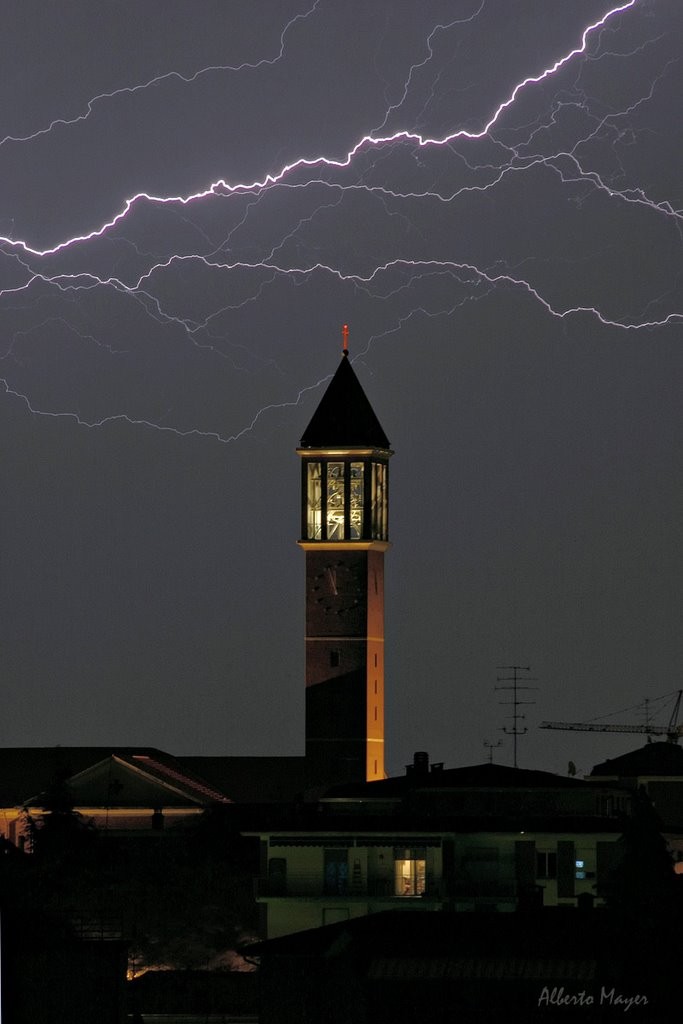Death by Bell Ringing May 24, 2015
Author: Beach Combing | in : Medieval, Modern , trackbackIn a moment of divine madness, a couple of years ago, Beach asked a question about knights and lightning: basically were sardine cans on horsebacks with long lances natural lightning rods? He has been inspired today to ask another lightning question. The following passage is taken from Wikipedia page on bell-ringers, one of Wiks less developed voces.
In the Middle Ages, it was believed that the sound of a bell could disperse thunder. A large number of bell-ringers were electrocuted as a result. In France between the years 1753 and 1786, 103 bell-ringers were killed during thunderstorms as a result of holding on to wet bell ropes. The Parlement of Paris enforced an edict in 1786 to forbid the practice. Deaths likely continued until the 19th century, when the lighting rod came into general use.
So you get the picture. You are in, say, Dawlish in Devon (south-western England) where bells were rung against storms as late as 1899. You are ringing hard. The bell ropes have been soaked by the torrential rain and then the nightmare: the electric storm passes over you and a bolt hits the tower. The charge takes the bell and then carries down the wet rope towards you: if Beach was filming this the poor bell ringer would be on an up bounce when it happened and he would come down ash and cinders (I know, I know but this is Hollywood…). However, Beach is not a director he is a historian and this little Wiki passage worries him because he had never heard of a bell-ringer being electrocuted. Now as it happens the Wiki writer was correct in putting this note up, as there are many, many references out there but most are second and many are third hand. The key text seems to be Johann Fischer Beweis, dass das Glockenläuten bey Gewittern mehr schädlich, als nützlich sey (Munich 1784) [Evidence that bellringing in storms is more harmful than helpful] This book unfortunately is not on Beach’s bookshelves. Anyone with German care to have a look?
As most references seem to come back to Fischer Beach wonders if he was an isolated crank: a German scholar, with an animus against medieval customs, worried about a problem that he had invented for himself or that had affected a very unlucky bell-ringer: the Germans are natural legislators. Or is bell-ringing in a thunderstorm extremely dangerous? Drbeachcombing AT yahoo DOT com From the few things that Beach has read in other sources the most dangerous thing that could happen to you is for the tower to be hit and then fall on your head…
30 June 2015: just a few little comments: DLR wrote ‘lightning does like things that stick up, from the ground, into the air. trees, towers, especially anything metallic. lightning doesn’t like so much the things in the air that are insulated from the ground. like a car on rubber tires. or a bell in a dry tower. a sign that you are about to be struck, is if your hair stands up. lightning normally is FIRST a microstreamer, going upwards, from the ground to the cloud, then the full burst, going downward. lightning protection, either from the franklin rods, which take the burst directly to ground, or modern systems of overarching ground shields, which dissipate the charge, were not used then. so, to answer the questions you didn’t ask, a knight would be insulated. the lance would be mostly wood, metal tipped, metal at the grip. a dry bell ringer would be insulated.



